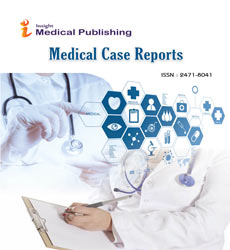Managing Low Blood Glucose: Insights into Hypoglycemia and Its Effects
Theodora Stratigou
Department of Medicine, David Geffen School of Medicine at UCLA, California, USA
Published Date: 2024-07-19DOI10.36648/2471-8041.10.04.389
Theodora Stratigou*
Department of Endocrinology, Evangelismos General Hospital, Athens, Greece
- *Corresponding Author:
- Tariku Lelago
Department of Endocrinology, Evangelismos General Hospital, Athens,
Greece,
E-mail: lelago_T@egh.edu
Received date: June 18, 2024, Manuscript No. IPMCRS-24-19528; Editor assigned date: June 21, 2024, PreQC No. IPMCRS-24-19528 (PQ); Reviewed date: July 05, 2024, QC No. IPMCRS-24-19528; Revised date: July 12, 2024, Manuscript No. IPMCRS-24-19528 (R); Published date: July 19, 2024, DOI: 10.36648/2471-8041.10.04.389
Citation: Stratigou T (2024) Managing Low Blood Glucose: Insights into Hypoglycemia and It's Effects. Med Case Rep Vol.10 No.04: 389.
Description
Hypoglycemia or low blood glucose, is a condition characterized by abnormally low levels of glucose in the blood. Glucose is a critical source of energy for the body's cells and maintaining its balance is essential for proper physiological function. Hypoglycemia can lead to a range of symptoms and complications, making it important to understand its causes, symptoms, diagnosis and management.
Causes of hypoglycemia
Hypoglycemia can result from various factors, often linked to an imbalance between glucose production and utilization. The most common cause of hypoglycemia is the use of insulin or other glucose-lowering medications in individuals with diabetes. Over medication, incorrect timing of doses, or mismatched doses relative to food intake and physical activity can cause blood glucose levels to drop too low. Prolonged fasting or inadequate nutritional intake can lead to low blood glucose levels. When the body does not receive enough carbohydrates, it depletes glycogen stores in the liver, which can result in hypoglycemia. The liver's capacity to release glucose may be hampered by alcohol in excess, alcohol can increase the risk of hypoglycemia, particularly in individuals taking diabetes medications. Certain medical conditions can also contribute to hypoglycemia. For example, adrenal insufficiency, severe kidney or liver disease and certain types of tumors can disrupt normal glucose regulation. Hormones such as insulin, glucagon and cortisol play a critical role in regulating blood glucose levels. Imbalances or deficiencies in these hormones, whether due to endocrine disorders or other factors, can lead to hypoglycemia. Shakiness, sweating, hunger, irritability and dizziness. These symptoms often signal that blood glucose levels are starting to difficulty concentrating, weakness and fatigue. At this stage, cognitive and physical functions may be affected, making it difficult to perform routine tasks. Severe hypoglycemia can lead to more serious symptoms, such as seizures, loss of consciousness and even coma. Immediate medical intervention is required to address these critical situations.
Diagnosis of hypoglycemia involves evaluating blood glucose levels and identifying the underlying causes. Blood glucose testing testing is typically performed using a glucose meter to confirm low levels. For individuals with diabetes, regular monitoring can help prevent hypoglycemic episodes. Healthcare providers may also conduct further investigations to identify underlying conditions or complications. This may include evaluating medical history, reviewing medication regimens and conducting additional tests to assess liver and kidney function, hormonal levels and other relevant factors.
For mild to moderate hypoglycemia, consuming fast-acting carbohydrates can quickly raise blood glucose levels. Options include glucose tablets, fruit juice, or sugary snacks. For individuals with severe symptoms, emergency treatment may involve intravenous glucose administration or glucagon injections, which stimulate the liver to release glucose.
People who have diabetes ought to collaborate closely with their healthcare provider to adjust medication dosages and schedules. This may involve modifying insulin or oral glucoselowering medications to better match food intake and activity levels.
Adopting lifestyle changes can help manage blood glucose levels and reduce the risk of hypoglycemia. This includes eating regular, balanced meals with appropriate carbohydrate content, avoiding excessive alcohol consumption and incorporating consistent physical activity.
Regular monitoring of blood glucose levels and educating patients on recognizing early symptoms of hypoglycemia are vital. Individuals with diabetes should be trained to use glucose meters effectively and understand how to respond to hypoglycemic episodes.
Hypoglycemia is a condition that requires careful management to prevent complications and ensure overall health. Understanding the reasons behind the symptoms, available treatments, and individuals at risk, particularly those with diabetes or other conditions that affect glucose regulation. By implementing appropriate strategies for monitoring, medication management and lifestyle modifications, individuals can effectively manage hypoglycemia and maintain better control over their blood glucose levels. Ongoing research and advancements in treatment continue to improve the management of this condition, offering hope for better outcomes and quality of life for those affected.

Open Access Journals
- Aquaculture & Veterinary Science
- Chemistry & Chemical Sciences
- Clinical Sciences
- Engineering
- General Science
- Genetics & Molecular Biology
- Health Care & Nursing
- Immunology & Microbiology
- Materials Science
- Mathematics & Physics
- Medical Sciences
- Neurology & Psychiatry
- Oncology & Cancer Science
- Pharmaceutical Sciences
